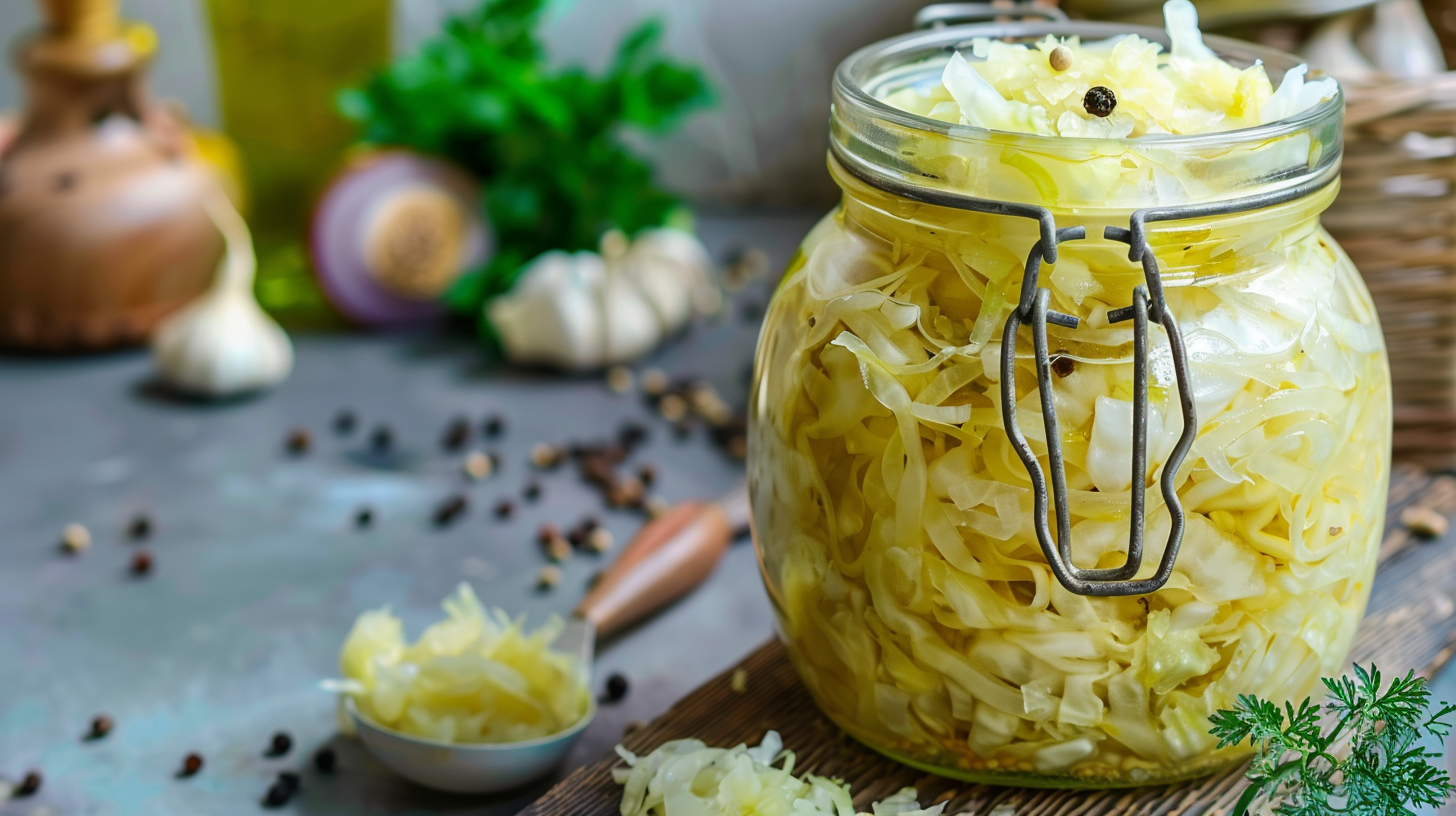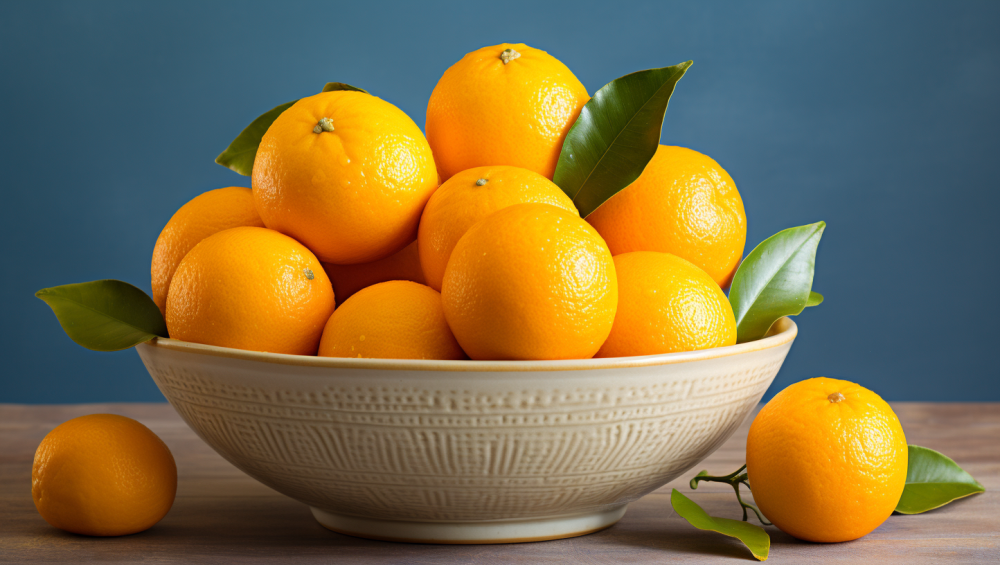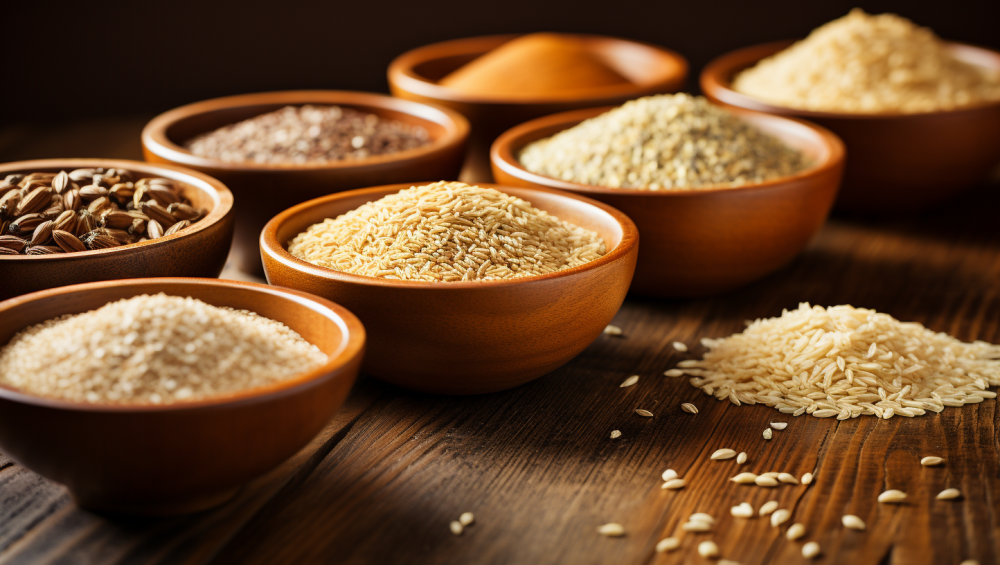What Is Protease And Why Do You Need It
Have you ever wondered why some people seem to have better digestion than others? Or why some individuals rarely get sick while others frequently fall ill? The answer may lie in a little-known enzyme called protease. As an essential component of your body’s digestive system and immune response, protease plays a vital role in maintaining your overall health and well-being. But what exactly is protease, and why do you need it?
Key Takeaways:
- Protease is an enzyme that aids in digestion and supports the immune system.
- Protease enzymes break down proteins into smaller components, facilitating their digestion and absorption.
- Protease helps modulate immune responses and enhances overall immune function.
- Incorporating protease into your daily routine can improve digestion, boost your immune system, and contribute to optimal health.
- Protease can be obtained through dietary sources or taken as a supplement.

Understanding Protease Enzymes
In order to truly appreciate the importance of protease enzymes for your overall health, it is essential to have a deeper understanding of their role and function in the body.
Protease enzymes, also known as proteolytic enzymes, are responsible for breaking down proteins into smaller peptides and amino acids. This process, called proteolysis, is vital for digestion, as proteins are an essential component of our diet.
Here’s a closer look at how protease enzymes work:
- Protease enzymes are produced in various parts of the body, including the pancreas, stomach, and small intestine.
- Once we consume protein-rich foods, protease enzymes are activated and start breaking down the large protein molecules into smaller, more manageable pieces.
- This breakdown allows for better absorption of vital nutrients, such as amino acids, that are necessary for various bodily functions.
- Protease enzymes also play a crucial role in eliminating any harmful or damaged proteins in the body, aiding in the maintenance of cellular health.
Overall, protease enzymes are key players in the process of protein digestion and utilization in the body.
| Key Points | Benefits |
|---|---|
| 1. Break down proteins into smaller peptides and amino acids. | – Enhanced digestion and nutrient absorption |
| 2. Aid in the removal of harmful or damaged proteins. | – Cellular health maintenance |
| 3. Produced in various parts of the body. | – Optimal protein breakdown throughout the digestive system |
“Protease enzymes are the unsung heroes of our digestive system, working tirelessly to break down proteins and ensure optimal nutrient absorption.”
By understanding the function of protease enzymes, we can begin to grasp the fundamental role they play in our overall well-being. From enhancing digestion to supporting cellular health, protease enzymes are essential for maintaining optimal health.
The Benefits of Protease for Digestion
Protease enzymes play a vital role in promoting healthy digestion. They facilitate the breakdown of proteins into smaller, more manageable components, enabling the body to absorb and utilize nutrients effectively. By incorporating protease into your diet or choosing protease supplements, you can experience several benefits that contribute to improved digestive health.
Enhanced Nutrient Absorption
Protease enzymes break down complex proteins into amino acids, which are the building blocks of proteins. These amino acids are essential for various bodily functions, including tissue repair, muscle growth, and hormone production. When proteins are inadequately digested, the body may struggle to absorb the necessary amino acids. By supplementing with protease or consuming protease-rich foods, you can enhance nutrient absorption and ensure your body gets the essential building blocks it needs.
Reduced Digestive Discomfort
Incomplete protein digestion can lead to digestive discomfort, such as bloating, gas, and indigestion. When proteins are not properly broken down, they can ferment in the gut, causing these unpleasant symptoms. Protease enzymes help prevent this by efficiently breaking down proteins into smaller peptides and amino acids. By incorporating protease into your diet, you can reduce digestive discomfort and promote a healthier and more comfortable gut environment.
Optimized Protein Utilization
Proteins are an essential macronutrient that plays a crucial role in various bodily processes. However, the body must first break down proteins into their individual components to utilize them effectively. Protease enzymes aid in this process by breaking down proteins into smaller molecules that can be easily absorbed and utilized by the body. By improving protein utilization, protease enzymes contribute to enhanced muscle recovery, immune function, and overall well-being.
Improved Gut Health
Proper protein digestion is essential for maintaining a healthy gut. When proteins are not fully broken down, they can provide a food source for harmful bacteria and lead to an imbalance in gut flora. This imbalance can contribute to digestive issues and compromise the overall health of the gut. Protease enzymes help maintain a healthy gut environment by ensuring proteins are properly digested, limiting the growth of harmful bacteria, and promoting the growth of beneficial bacteria.
| Benefits of Protease for Digestion |
|---|
| Enhanced nutrient absorption |
| Reduced digestive discomfort |
| Optimized protein utilization |
| Improved gut health |
Protease and Immune System Support
In this section, we will explore the fascinating relationship between protease enzymes and your immune system. Protease enzymes play a crucial role in supporting overall immune function and modulating immune responses to keep you healthy and thriving.
Protease enzymes are instrumental in promoting a well-balanced immune system. They help regulate the immune response, ensuring it is neither too weak nor too strong. By maintaining this delicate balance, protease enzymes help protect your body against harmful pathogens and prevent inflammatory reactions that can lead to chronic conditions.
One of the key ways protease enzymes support your immune system is by breaking down proteins into smaller peptides and amino acids. This process, known as proteolysis, helps remove potential antigens and reduce the burden on your immune system. By eliminating these proteins, protease enzymes ensure a more targeted and efficient immune response.
Protease enzymes play a critical role in regulating immune responses and promoting a balanced immune system.
Beyond their role in protein breakdown, protease enzymes also have immunomodulatory effects. They interact with immune cells, such as lymphocytes and macrophages, influencing their activity and function. Protease enzymes can regulate the production of cytokines, which are signaling molecules involved in immune response coordination. This regulation helps maintain immune homeostasis and supports the body’s natural defense mechanisms.
The impact of protease enzymes on the immune system extends beyond their direct effects. By aiding in digestion and nutrient absorption, protease enzymes contribute to overall health and vitality. Proper digestion ensures that your body receives the necessary nutrients for optimal immune function. Adequate protein digestion is particularly vital as proteins are essential for the production of antibodies and other immune factors.
Furthermore, protease enzymes can help break down biofilm, which is a protective barrier formed by pathogenic bacteria. By degrading these biofilms, protease enzymes inhibit the growth and survival of harmful bacteria while promoting a healthier microbiome.
The role of protease enzymes in supporting the immune system is multifaceted and crucial for maintaining overall health. By promoting a balanced immune response, aiding in protein digestion, and degrading biofilms, protease enzymes contribute to a robust immune system and help safeguard your well-being.
Protease Supplements for Optimal Health
When it comes to maintaining optimal health, protease supplements can play a crucial role. These supplements are specifically designed to enhance digestion and support the immune system, offering a range of benefits for your overall well-being.
One of the key reasons protease supplements are important is their ability to improve digestion. Protease enzymes help break down proteins, enabling your body to absorb essential nutrients more efficiently. By supplementing with protease, you can ensure that your digestive system functions optimally, reducing issues such as bloating, gas, and indigestion.
In addition to their impact on digestion, protease supplements also provide crucial support to the immune system. These enzymes help modulate immune responses, ensuring a balanced immune function. By promoting a healthy immune system, protease supplements can aid in preventing illness and supporting your overall well-being.
Considering the importance of protease for digestion and immune system support, incorporating protease supplements into your daily routine can be highly beneficial. Whether you’re looking to optimize your digestive health or bolster your immune system, protease supplements offer a convenient and effective solution.
To summarize, protease supplements are essential for maintaining optimal health. By enhancing digestion and supporting the immune system, these supplements can provide a range of benefits for your overall well-being. Make protease supplements a part of your wellness routine and unlock the power of improved digestion and a robust immune system.
| Benefits of Protease Supplements | Aid in digestion |
|---|---|
| Improved nutrient absorption | Modulate immune responses |
| Reduced bloating and indigestion | Prevent illness |
| Enhanced overall well-being | Overall improvement in digestive function |
Unlocking the Power of Protease Enzymes
In this section, we will delve deeper into the numerous benefits of protease enzymes. From aiding in digestion to supporting a healthy immune system, protease enzymes play a vital role in promoting overall well-being.
Aiding in Digestion for Optimal Nutrient Absorption
Protease enzymes are essential for breaking down proteins into smaller molecules, known as amino acids. These amino acids are then easily absorbed by the body, providing the necessary building blocks for cellular repair, growth, and maintenance. By ensuring efficient protein digestion, protease enzymes contribute to optimal nutrient absorption and overall digestive health.
Supporting a Healthy Immune System
Protease enzymes also play a crucial role in supporting a strong and robust immune system. These enzymes help modulate immune responses, promoting a balanced immune function. By regulating inflammation and promoting the removal of harmful protein debris, protease enzymes contribute to a healthy immune system defense against pathogens and other foreign invaders.
Reducing Inflammation and Accelerating Healing
Protease enzymes possess anti-inflammatory properties, which can help reduce inflammation in the body. Inflammation is a natural response to injury or infection, but when it becomes chronic, it can lead to various health issues. Protease enzymes aid in regulating the inflammatory response, helping to alleviate symptoms and promote faster healing.
Protease enzymes have been shown to have a positive impact on a wide range of health conditions, including arthritis, sinusitis, and inflammatory bowel diseases.
Improving Gut Health and Alleviating Digestive Discomfort
The benefits of protease enzymes extend to promoting a healthy gut environment and alleviating digestive discomfort. By effectively breaking down proteins, these enzymes support the balance of microbial flora in the gut and help prevent digestive issues such as bloating, gas, and indigestion.
Enhancing Exercise Recovery
In addition to their effects on digestion and the immune system, protease enzymes have been found to aid in exercise recovery. By accelerating muscle repair and reducing inflammation caused by intense physical activity, these enzymes can help individuals recover faster and optimize their performance.
| Benefit | Explanation |
|---|---|
| Aids in Digestion | Protease enzymes break down proteins into smaller molecules, facilitating optimal nutrient absorption. |
| Supports the Immune System | Protease enzymes help modulate immune responses and promote immune system health. |
| Reduces Inflammation | Protease enzymes possess anti-inflammatory properties, helping to alleviate inflammation and promote healing. |
| Improves Gut Health | By promoting a healthy gut environment, protease enzymes aid in alleviating digestive discomfort and maintaining microbial balance. |
| Enhances Exercise Recovery | Protease enzymes accelerate muscle repair and reduce exercise-induced inflammation, aiding in faster recovery. |
How Protease Improves Digestive Health
When it comes to maintaining a healthy digestive system, protease enzymes play a crucial role. These enzymes are responsible for breaking down proteins into smaller components that can be easily absorbed by your body. By aiding in the digestion of proteins, protease enzymes help alleviate common digestive issues such as bloating and indigestion.
Protease enzymes work by breaking the peptide bonds between amino acids in proteins, converting them into amino acids or smaller protein fragments called peptides. This breakdown process allows your body to efficiently process and absorb the nutrients from the proteins you consume.
Without sufficient protease enzymes, your body may struggle to fully digest proteins, leading to discomfort and digestive disturbances. By incorporating protease into your diet or through supplementation, you can support optimal digestion and prevent digestive issues.
“Protease enzymes break down proteins into smaller components, aiding in digestion and reducing bloating and indigestion.” – Dr. Amanda Thompson, Digestive Health Expert
Protease enzymes not only promote digestion but also support the overall health of your digestive system. By breaking down proteins effectively, these enzymes ensure that your body can access and absorb the essential amino acids needed for various bodily functions. This includes the synthesis of enzymes, hormones, and neurotransmitters, which are essential for overall well-being.
Benefits of Protease for Digestive Health:
- Improved digestion of proteins
- Reduced bloating and indigestion
- Enhanced absorption of essential nutrients
- Promotion of optimal digestive function
To illustrate the impact of protease on digestive health, let’s take a closer look at the following table that compares the digestion of proteins with and without protease:
| Without Protease | With Protease |
|---|---|
| Slow protein breakdown | Efficient protein breakdown |
| Incomplete digestion | Complete digestion |
| Bloating and indigestion | Reduced bloating and indigestion |
As you can see, incorporating protease into your diet or taking protease supplements can have a significant impact on your digestive health, ensuring that proteins are properly broken down and digested without causing discomfort. By improving digestion, protease promotes better nutrient absorption and supports overall digestive function.
In the next section, we will explore how protease enzymes contribute to the support of your immune system and why they are essential for immune health.
Protease’s Role in Boosting Immunity
When it comes to supporting your immune system, protease plays a vital role. Protease enzymes, commonly found in our body, contribute to a robust immune response and can help in preventing illness. Let’s explore how protease enhances your immune system and its benefits for overall health.
Protease enzymes act as powerful modulators of the immune system, regulating immune responses and promoting balance. They play a crucial role in breaking down foreign proteins, such as pathogens, and eliminating them from the body. This process is essential for preventing infections and promoting optimal immune function.
One of the key benefits of protease is its ability to enhance the activity of other immune cells, such as natural killer (NK) cells and macrophages. By aiding in the breakdown of pathogens and promoting the recognition of infected or abnormal cells, protease helps these immune cells to efficiently identify and eliminate threats. This enhances the overall immune response and strengthens your body’s defense against infections and diseases.
In addition, protease enzymes have been found to support the production of cytokines, which are signaling molecules involved in immune system communication and coordination. Cytokines help regulate inflammation and immune responses, ensuring a balanced and effective defense against pathogens. By promoting the production of these cytokines, protease enzymes contribute to a well-coordinated immune system that can quickly respond to threats.
“Protease enzymes play a crucial role in enhancing the immune system’s response to pathogens and promoting overall immune health.”
By boosting your immune system, protease can help prevent and manage a range of health conditions. This includes supporting respiratory health, reducing the severity of allergic reactions, and speeding up recovery from infections. Protease’s immune-boosting properties make it a valuable component of any comprehensive health and wellness regimen.
Incorporating protease-rich foods into your diet is one way to naturally support your immune system. Foods such as papaya, pineapple, and fermented soy products contain natural protease enzymes that can aid in digestion and enhance immune function.
In summary, protease enzymes play a critical role in boosting the immune system by modulating immune responses, aiding in pathogen elimination, and promoting the production of cytokines. By incorporating protease into your routine, you can strengthen your body’s defense against infections, support overall immune health, and enjoy the benefits of a robust immune system.

Understanding the Function of Protease Enzymes
Protease enzymes play a vital role in various physiological processes in the body. These enzymes are responsible for breaking down proteins into smaller peptides and amino acids, facilitating digestion and ensuring proper nutrient absorption. Let’s take a closer look at how protease enzymes function and their specific mechanisms in the body.
At a molecular level, protease enzymes possess an active site that can selectively bind to specific peptide bonds in proteins. Once bound, these enzymes cleave the peptide bonds, resulting in the breakdown of proteins into smaller and more manageable components. This process is essential for efficient digestion and the release of amino acids, which serve as building blocks for numerous bodily functions.
The Mechanisms of Protease Enzymes
Protease enzymes employ different mechanisms to catalyze the breakdown of proteins. One common mechanism is called the catalytic triad, which involves three key components: a nucleophile, an electrophilic substrate, and a general base. The nucleophile attacks the electrophilic substrate, leading to the cleavage of the peptide bond. This mechanism ensures the efficient and specific degradation of proteins in the body.
“Protease enzymes are highly specific and can target particular peptide bonds, allowing for the controlled breakdown of proteins.” – Dr. Jane Wilson, Biochemist
In addition to their role in digestion, protease enzymes also serve other important functions in the body. They play a crucial role in cellular processes, such as protein turnover, where old or damaged proteins are degraded and replaced with new ones. Protease enzymes also help regulate gene expression and participate in immune responses by breaking down foreign proteins, such as those found in pathogens, to aid in their elimination.
Overview of Protease Enzyme Function
The main function of protease enzymes is to break down proteins into smaller peptides and amino acids. This ensures proper digestion, allowing the body to absorb essential nutrients from the diet. Protease enzymes also contribute to overall cellular health by removing damaged or misfolded proteins, maintaining protein homeostasis, and supporting various physiological processes.
It’s important to note that different protease enzymes have distinct specificities and act on different types of peptide bonds. This diversity allows for efficient digestion of various protein sources from both animal and plant-based foods.
| Protease Enzyme | Sources | Optimal pH |
|---|---|---|
| Pepsin | Gastric glands in the stomach | pH 1.5-2.5 |
| Trypsin | Pancreas | pH 7.5-8.5 |
| Chymotrypsin | Pancreas | pH 7.5-8.5 |
Table: Examples of Protease Enzymes and Their Sources
As seen in the table above, different protease enzymes are sourced from various organs and operate optimally at specific pH levels. This showcases the intricate balance required for efficient protein digestion in the human body.
In conclusion, protease enzymes play a crucial role in the breakdown of proteins, ensuring proper digestion and nutrient absorption. These enzymes possess specific mechanisms and diverse specificities to cleave peptide bonds, contributing to overall cellular health and supporting various physiological processes.

Incorporating Protease for Optimal Health
To ensure optimal health, it is essential to incorporate protease into your daily routine. Protease plays a vital role in digestion and supports overall well-being. By including protease in your diet, you can enjoy numerous benefits for your digestive system and overall health.
Dietary Sources of Protease
One way to incorporate protease into your daily routine is by consuming foods that naturally contain this vital enzyme. Several dietary sources are rich in protease:
- Lean meats such as chicken, turkey, and fish
- Eggs
- Legumes such as lentils, beans, and chickpeas
- Dairy products like yogurt and cheese
- Fermented foods such as sauerkraut and tempeh
- Papaya and pineapple
By including these foods in your diet, you can provide your body with the necessary protease to support digestion and nutrient absorption.
Protease Supplements
In addition to dietary sources, protease supplements can also be an effective way to incorporate this enzyme into your daily routine. These supplements provide a concentrated dose of protease, ensuring you receive adequate amounts for optimal digestion.
Protease supplements can be particularly beneficial for individuals with digestive issues or those who struggle to obtain enough protease from their diet alone.
When choosing a protease supplement, it is important to look for a high-quality product from a reputable brand. Consult with a healthcare professional to determine the appropriate dosage and find a supplement that best suits your needs.
By incorporating protease into your daily routine, whether through dietary sources or supplements, you can support optimal digestion and overall health. Protease plays a crucial role in breaking down proteins, aiding in the absorption of nutrients, and maintaining a healthy digestive system.
Exploring Protease’s Impact on Overall Well-being
Protease enzymes play a vital role in supporting your overall well-being. These enzymes are essential for efficient digestion and proper functioning of the immune system. By incorporating protease into your daily routine, you can experience a wide range of benefits that contribute to a healthy and balanced lifestyle.
The Benefits of Protease Enzymes
Protease enzymes are responsible for breaking down proteins into smaller components, known as peptides and amino acids. This process aids in the digestion and absorption of nutrients, ensuring that your body can effectively utilize the food you consume. Proper digestion is crucial for maintaining optimal energy levels and supporting overall health.
Furthermore, protease enzymes also play a significant role in supporting your immune system. They help regulate immune responses and promote a robust immune function. By keeping your immune system in check, protease enzymes assist in defending your body against harmful pathogens and promoting overall wellness.
The Importance of Protease-Enriched Diet
Incorporating protease-enriched foods into your diet is a simple and effective way to enhance your overall well-being. Some dietary sources of protease enzymes include:
- Fresh fruits such as pineapples and papayas, which naturally contain protease enzymes like bromelain and papain.
- Fermented foods like sauerkraut and kimchi, which can provide an additional boost of protease enzymes for better digestion.
- Supplements containing protease enzymes, which can be a convenient option for individuals with specific dietary needs or restrictions.
Protease Enzymes and a Healthy Lifestyle
By incorporating protease into your daily routine, you can experience the following benefits:
- Improved digestion: Protease enzymes aid in the breakdown of proteins, reducing the risk of indigestion, bloating, and other gastrointestinal discomforts.
- Enhanced nutrient absorption: Proper protein digestion allows for better absorption of essential amino acids and nutrients, supporting overall health and vitality.
- Optimized immune function: Protease enzymes help modulate immune responses, ensuring a well-functioning immune system capable of fighting off infections and diseases.
- Reduced inflammation: Protease enzymes have been shown to have anti-inflammatory properties, supporting joint health and overall well-being.
| Benefits of Protease Enzymes | Importance for Overall Well-being |
|---|---|
| Improved digestion | Efficient nutrient absorption |
| Enhanced immune function | Reduced risk of infections |
| Reduced inflammation | Support for joint health |
As you can see, protease enzymes have a significant impact on your overall well-being. By incorporating protease-enriched foods or supplements into your daily routine, you can experience improved digestion, enhanced immune function, and reduced inflammation. Start harnessing the power of protease enzymes today for optimal health and vitality.

Conclusion
In conclusion, protease enzymes are essential for efficient digestion and optimal functioning of the immune system. The importance of protease cannot be understated, as it plays a crucial role in breaking down proteins and facilitating nutrient absorption.
By incorporating protease into your routine, you can experience a range of benefits for your overall health and well-being. Protease aids in digestion by breaking down proteins into smaller molecules, making them easier for your body to absorb and utilize. This can alleviate digestive issues such as bloating, gas, and indigestion, allowing you to enjoy your meals without discomfort.
Furthermore, protease enzymes also contribute to a strong immune system. They help modulate immune responses, supporting your body’s ability to defend against pathogens and maintain overall immune function. By investing in protease, you can bolster your immune system and reduce the risk of illness.
To harness the power of protease, you can consider incorporating protease supplements into your daily routine. These supplements provide a concentrated dose of this essential enzyme, ensuring that you receive the necessary support for digestion and immune system health.
By prioritizing the benefits of protease and its significance in maintaining optimal health, you can unlock a world of improved digestion, enhanced nutrient absorption, and a fortified immune system.
FAQ
What is protease and why do you need it?
Protease is an enzyme that helps break down proteins in the body. You need protease enzymes for proper digestion and absorption of nutrients. Additionally, protease plays a crucial role in supporting your immune system.
What are protease enzymes and how do they function in the body?
Protease enzymes are a type of enzyme that breaks down proteins into smaller peptides and amino acids. They work by cleaving peptide bonds in protein molecules, facilitating digestion and ensuring proper nutrient absorption.
What are the benefits of protease for digestion?
Protease enzymes aid in digestion by breaking down proteins into smaller components, making it easier for the body to absorb essential amino acids. This can alleviate digestive discomforts such as bloating and indigestion, promoting overall digestive health.
How does protease support the immune system?
Protease enzymes play a crucial role in supporting the immune system. They help modulate immune responses, promote balanced inflammation levels, and aid in tissue repair. This can contribute to a healthy immune system and better overall well-being.
Are there protease supplements available?
Yes, protease supplements are available in the form of capsules or tablets. These supplements provide additional protease enzymes to support digestion and immune function. They can be particularly beneficial for individuals with compromised digestive systems or who require additional immune support.
What are the overall benefits of protease enzymes?
Protease enzymes offer numerous benefits for your health. They support digestion, aid in nutrient absorption, promote a healthy immune system, and can alleviate digestive discomfort. By incorporating protease into your routine, you can experience improved overall well-being.
How does protease improve digestive health?
Protease improves digestive health by breaking down proteins effectively, reducing the risk of indigestion, bloating, and other digestive issues. It ensures that proteins are properly digested and absorbed, optimizing nutrient utilization in the body.
What role does protease play in boosting immunity?
Protease plays a crucial role in boosting immunity. It helps regulate immune responses, supports the production of immune cells, and aids in tissue repair. By enhancing immune function, protease can help prevent illness and promote overall wellness.
What is the function of protease enzymes?
The function of protease enzymes is to break down proteins into smaller peptides and amino acids, allowing for easier digestion and absorption. They play a vital role in maintaining proper protein balance, ensuring optimal health and wellness.
How can I incorporate protease into my daily routine?
You can incorporate protease into your daily routine by consuming foods rich in protease enzymes, such as papaya and pineapple. Alternatively, you can also consider taking protease supplements, which provide a concentrated dose of these enzymes for optimal health benefits.
What impact does protease have on overall well-being?
Protease has a significant impact on overall well-being. It supports digestion, promotes nutrient absorption, strengthens the immune system, and aids in tissue repair. By incorporating protease into your routine, you can improve your overall health and experience a greater sense of well-being.


































